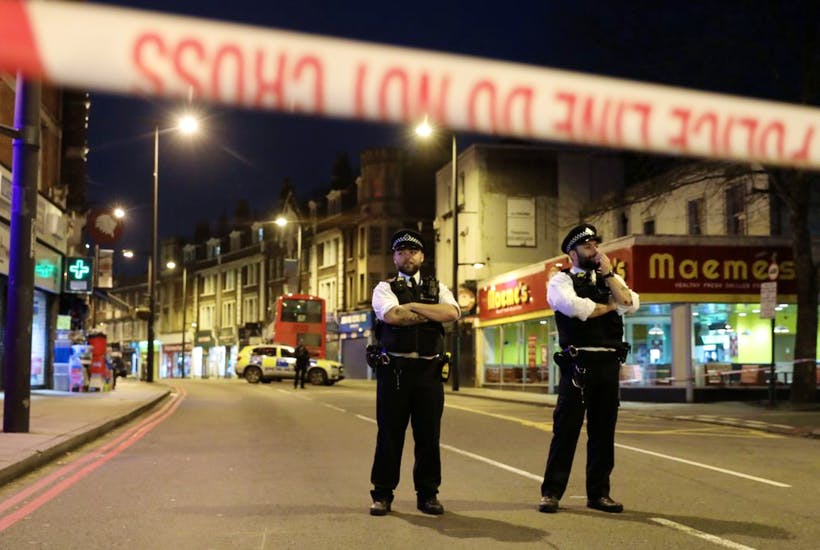When I worked at Lidl, there were a few products that we took extra care with. Some of these were high-value goods at risk of being stolen (like the £100 laptop we once sold, causing biblical scenes of chaos in the middle aisle). Others were to comply with laws on selling dangerous goods. Knives were always locked up behind the till. In Lidl’s Tooting branch, in a relatively rough area near Streatham, the knives were all taken out of their boxes and locked up in the managers’ office. To purchase, you’d have to show ID and wait at a till as a manager brought back the knife.
So how was it possible that Sudesh Amman, barely out of his teenage years, was able to swipe a knife from a local high street shop? It turns out that the ten-inch knives there were left on display, something Amman had sussed out the week before when he visited the shop. Kiranjeet Singh, who was working at the Streatham High Road bargain store, said:
‘My brother said he grabbed a ceramic 10-inch kitchen knife that was hanging by the till and ran outside. My brother chased him but he tore off the wrapper and stabbed a woman in the back. He stabbed another man in the side and he was more severely injured than the woman.’
So while staff at the shop would most likely have checked a customer’s ID if given the chance, Amman exploited a loophole by simply stealing the knife that was left on display.
This begs the question: are small independent retailers like Streatham’s bargain store falling through the gaps of existing policy when it comes to tackling knife crime?
Back in 2016, the stabbing of an antique dealer in Oxford triggered major retailers to join into a voluntary agreement. It has always been illegal to sell knives to under-18s, but this agreement had signatories promising to ‘ensure knives are displayed and packaged securely’. They would have to ‘restrict accessibility and avoid immediate use, reduce the possibility of injury, and prevent theft’. High street chains from Tesco to Lidl, Wilko to Argos, and online retailer Amazon, all signed up; but no small independent retailers were involved, leaving a gap where shops like the Low Price Store were able to leave knives hanging on the shop floor.
Last September, a training campaign aimed at these smaller retailers was launched by London authorities and the Met police. Through test purchases, the authorities found that one in nine shops sold knives to volunteers as young as 13. The campaign – the Responsible Retailer Agreement – also encourages retailers to ‘understand the basic requirements for the safe storage of knives’.
While 20-year-old Amman would have passed the age restriction, the process of having to show ID could have stopped him getting the knife (either from staff assessing his state of mind or the police trailing him and realising what he was doing), or even prevented him trying. Sadly for Amman’s victims, it seems that the Responsible Retailer Agreement hadn’t quite made it to Streatham High Road.







Comments